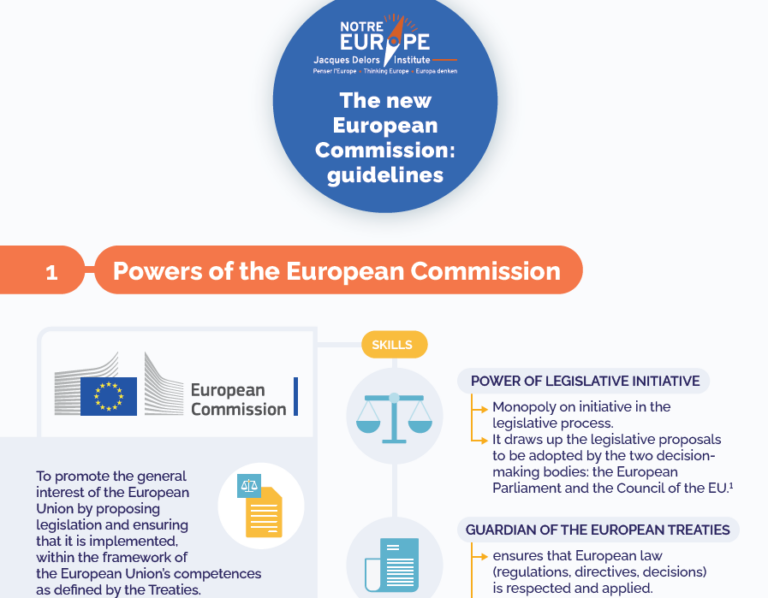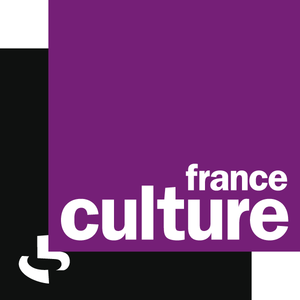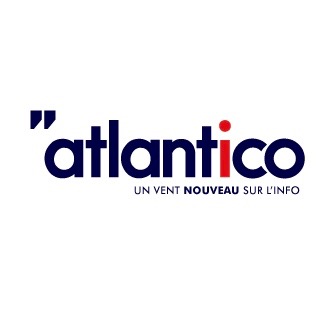Blog post
« Europe’s New beginnings »
| 27/11/2019
The European Union is renewing the leadership of its main institutions and starting a new policy cycle at a time when it is challenged both internally and externally.
Internally, it is facing increased political division amidst rising demands to deliver public goods. The European Parliament elections were symptomatic in this regard. While participation was the highest in 25 years, the ‘grand coalition’ between the European People’s Party and the Social Democrats has fallen short of the absolute majority they held since 1979. The share of right-wing Eurosceptics and populists increased, Brexiters included, but so did that of Liberals and Greens, which campaigned on a promise to change the way the Union works. The struggle to agree on the EU’s top jobs has clearly illustrated the difficulty of finding new stable majorities. While public approval of the EU is on average high, citizens are clearly expecting it to deliver in line with shared values and interests. The five most decisive policy issues for their vote in the European Parliament elections were: economy and growth, fighting climate change and protecting the environment, promoting human rights and democracy, immigration, and social protection.
These priorities are also reflected in the EU’s external challenges. The EU is struggling to remain competitive in light of China-US trade wars and rising protectionism. Globalisation and digitalisation can lead to increasing social inequalities if not accompanied by the right policies. The international fight against climate change has become even more challenging since the United States’ withdrawal of the Paris climate accord. Promoting human rights and democracy in Europe’s neighbourhood becomes harder when powers such as China readily invest without strings attached. The EU’s relationships are more broadly challenged in a tougher geopolitical environment, embodied by the Trump administration and authoritarian regimes as in Russia, questioning EU’s security agenda. Meanwhile, violent conflicts and terrorism result in people having to flee their homes and seek shelter in Europe, which struggles to live up to its very own human rights and rule of law standards.
Europe’s new beginnings are thus marked by intertwined internal and external challenges as well as great deal of hope and high expectations among Europeans, who wish to see their way and standard of living protected. These challenges should be met with relevant ideas and concrete policy steps. This is why we at the Jacques Delors Institutes in Paris and Berlin have decided to publish “New Beginnings” – a briefing series that shows concrete paths forward in the policy fields we know best:
1- Energy (Thomas Pellerin-Carlin et al.) Ursula von der Leyen has chosen to make the ‘European Green Deal’ her number one priority. This crosscutting issue should federate all the services of the European Commission, and start by accelerating the transition to a clean energy future. To do so, von der Leyen needs to build a broad coalition of EU governments, Members of Parliament and citizens. We therefore argue that the European Commission should structure the ‘European Green Deal’ around three complementary policy priorities: climate ambition to set the direction, innovation-based competitiveness to help EU companies develop the clean energy solutions for Europe and the world, and social justice to ensure an inclusive transition that improves the living conditions of all Europeans.
2- Eurozone (Lucas Guttenberg) The new Commission should shift gears. Rather than spending ever more political capital on ever smaller technical reform steps, it should focus on fostering a political consensus on the future direction of Eurozone reform. In parallel, it should ensure that the Eurozone is prepared for the next crisis, which might just be around the corner. This means first to bring the current reform package including a mini-Eurozone budget over the finish line; second to make Banking Union work properly; and third to prepare a playbook for a joint fiscal response in a future recession.
3- Trade (Elvire Fabry) While the geopolitical dimension of trade policy is growing in importance and multilateralism is threatened, consensus in public opinion for global trade has shrunk and value chains are shortening. In this changing context of globalisation and with the surge in support for the Greens in the new European Parliament, the new Commission, which holds an exclusive competence in trade policy, must make it more ecological and inclusive, also reinforcing the compliance of imports with European standards. This shift in EU trade policy requires a whole set of greening and social measures as well as key initiatives to strengthen multilateralism.
4- Foreign and security policy (Nicole Koenig) EU institutions and member states should join forces to address the capabilities-expectations gap which is widening in light of internal and external contestation. This implies, first, starting with the right institutional set-up, notably a European Security Council providing strategic direction and a Commission DG Defence driving defence industrial consolidation. Second, the EU should raise the European Defence Union to the next level by addressing divergent arms export policies, strengthening its operational arm and deepening cooperation with NATO. Third, the EU should revitalise foreign policy by taking gradual steps towards QMV, making the Council’s work more efficient, and developing a longer-term vision.
5- Digital (Paul-Jasper Dittrich) Many challenges are ahead for the EU’s digital and innovation policy in the next five years. Although there are signs that the European tech ecosystem is slowly but steadily catching up, the EU is still lagging behind the US (and now also China) in tech-related measures, be it investment in AI start-ups, adoption of new business models, data usage or market valuations of technology companies. The EU will need to considerably improve the framework conditions for its start-ups and its digitalizing old industries to counter these trends. At the same time the EU will need to find a new balance between the power of large online platforms and the protection of European values and public goods. Today’s tech giants not only organise the global information flows, but increasingly also govern the European public sphere and use their market dominance to the detriment of competitors and smaller businesses.
6- Democracy (Thierry Chopin) The principles of liberal democracy and the rule of law are the legal and political foundations of the EU. For several years, liberal democracy has been called into question under pressure from populist and extremist political forces. Even if simple solutions do not exist, it is essential to develop a strategy to combat these developments. First, the Court of Justice has a central role to play in protecting fundamental European values and the rule of law. Second, it is essential to strengthen control over the use of community funds and to strengthen the EU’s role in the fight against corruption which is an aspect of the current democratic regression. Third, a political strategy is necessary: the first step is to recognize the urgency of the problem: it is an intellectual, political and cultural struggle (the key lies in education and culture policies); the other key is to be found with European political elites, who must seize the discourse on European values and stimulate it consistently, in a credible and audible way.
7- Migration (Lucas Rasche) Commission President-elect Ursula von der Leyen promised a ‘fresh start on migration’. That would imply moving EU migration policy out of its sustained crisis mode and breaking the deadlock surrounding the notion of solidarity. First, decision-makers in the EU and the member states should counter right-wing rhetoric with a narrative focused on the protection of human lives and solidarity. Second, asylum standards should be further harmonised and positive asylum decisions should be mutually recognised. Third, the EU should address the situation in the Mediterranean by solidifying the ‘stable mechanism’ for the relocation of rescued asylum-seekers and by establishing a search and rescue operation coordinated by the European Border and Coast Guard.
8- Employment and social policy (Sofia Fernandes) Commission President-elect Ursula von der Leyen has called for a “fairer and more equal Europe”. This political priority is justified not only for normative or functional reasons, but also for political ones. In a context of rising Euroscepticism, the EU must live up to citizens’ expectations and improve their living and working conditions. To that purpose, the new Commission should adopt a Social Action Plan for the next five years to turn into concrete initiatives the 20 principles of the European Pillar of Social Rights proclaimed two years ago. This Plan should include five key priorities: i) Re-launching the European ‘convergence machine’; ii) Investing in human capital and tackling inequalities; iii) Ensuring a fair transition to a digital and low-carbon economy; iv) Striving for more social equality and tax justice; v) Ensuring fair mobility of workers. In its strategy to reinforce the social dimension of the EU project, the next Commission should envisage the possibility of a differentiated social integration. If it is not possible to move forward with all EU countries, enhanced cooperation may be a better solution than inaction.
9- Budget (Eulalia Rubio) The von der Leyen Commission starts its mandate in the middle of the negotiations of the next Multi-Annual Financial Framework (MFF) covering the 2021-2027 period. It cannot re-draft the MFF from scratch but has some leverage to influence the negotiations of the MFF and related EU spending programmes, particularly if partnering with the new European Parliament. In this final briefing of our series, we provide some recommendations to the next Commission on how to work together with the Parliament to secure an appropriate and well-functioning EU budget for the years ahead and to align the next MFF and related sectoral spending programmes to the new Commission’s budgetary ambitions in the fields of energy and climate, digital, social, migration, EMU, security and defence and the respect of democratic values.
SUR LE MÊME THÈME
ON THE SAME THEME
PUBLICATIONS
A powerful Europe, now or never

The new European Commission: guidelines

An overhaul of the European fiscal framework?

MÉDIAS
MEDIAS
Enrico Letta – Ceux qui s’inquiètent pour l’Europe…

UE : nouvelles équipes, nouveaux équilibres

Voilà pourquoi Ursula von der Leyen serait bien inspirée d’écouter l’avertissement lancé par Josep Borrell en quittant ses fonctions

ÉVÉNEMENTS
EVENTS
Les rendez-vous de la Rep | Meeting with Nicole Gnesotto [FR]

WEBINAR | The day after the European Commission’s Post-Covid economic recovery proposal

Paris, 5 November 2019 – How to finance Energy Innovation in Europe in order to reach Climate neutrality by 2050?
















